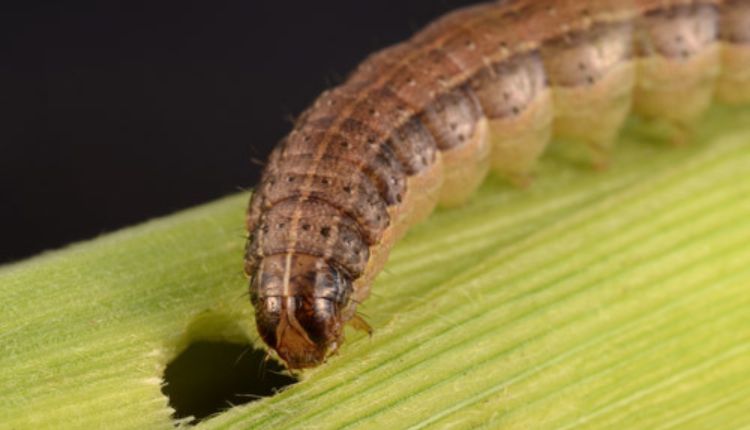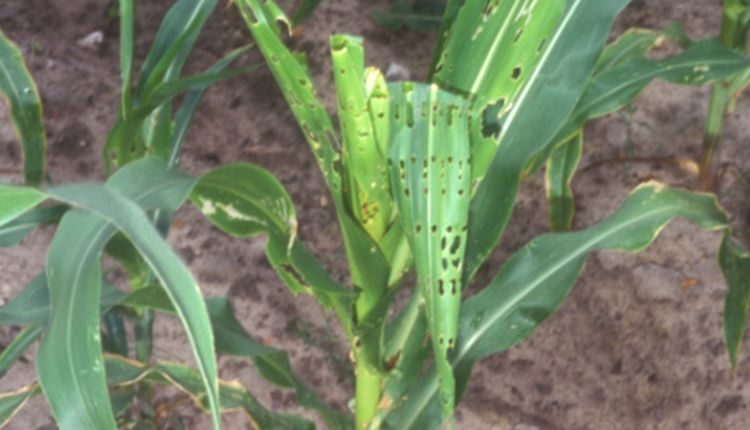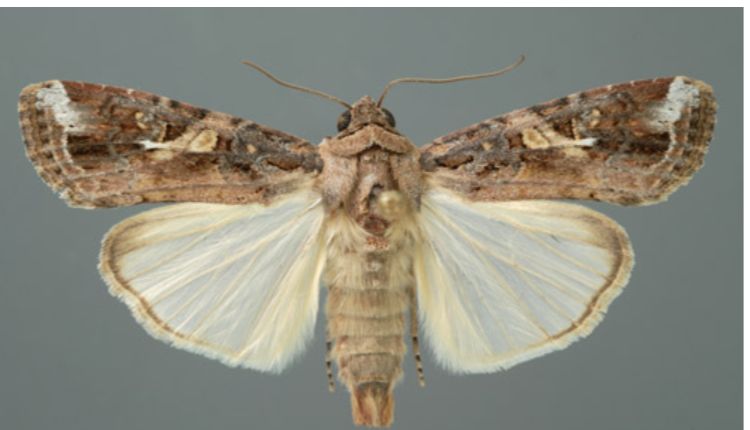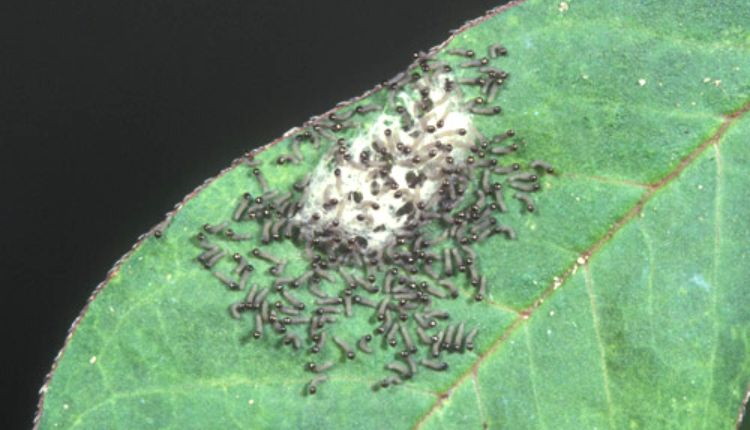Follow planned methods to protect crops from Fall Armyworm
Fall Armyworm completely destroys the crop in which it is planted
The Food and Agriculture Organization of the United Nations (FAO) has issued a warning to farmers and entomologists around the world that in future, the yield of food crops may be severely damaged by a pest called fall armyworm. This pest is so dangerous that it completely destroys whatever crop it is in. Its ill-effects have so far spread to at least 80 varieties of crops, vegetables, fruits and flowers in 70 countries including India.
The scientific name of fall armyworm is Spodoptera frugiperda. In the year 2016, this pest reached Nigeria and within a few days it spread to 44 countries of Africa. This pest is so dangerous that it completely destroys whatever crop it is in. That’s why, according to FAO, huge amounts of money have been spent globally to get rid of the fall armyworm.
According to experts, before it is too late, all countries will have to take systematic steps to avoid this regular and serious pest. Because now they are posing a huge threat to agriculture sector of Asian countries apart from Africa and Europe. Fall armyworms either cannot survive or go into dormancy during the harsh winter months but develop rapidly during the summer months and cover long distances, thanks to their strong wings.

According to insect experts from the University of Florida in the US, corn and sweet corn are the staple food of the fall armyworm. But it also frequently affects crops such as barley, Bermudagrass, buckwheat, cotton, clover, alfalfa, oats, millets, groundnut, paddy, ryegrass, sugar beet, soybean, sugarcane, timothy, tobacco and wheat. Apples, grapes, oranges, papayas, peaches, strawberries and many flower crops are also occasionally vulnerable to these pests.
Weeds that play host to fall armyworms are : bentgrass (Agrostis), crabgrass (Digitaria), Johnson grass (Sorghum halepense), morning glory (Ipomoea), nutgage (Cyperus), pigweed (Amaranthus) and sandspur (Cenchrus). tribuloides).

Fall Armyworm Lifecycle
The life cycle of the fall armyworm is 30 to 61 days. Its adult female lays 50 to 200 eggs at a time. Females can lay up to 1700 to 2000 eggs in the form of 10 bunches in their lifetime of 7 to 21 days. These eggs hatch in 3 to 4 days. Then the larvae emerge from them. The larval period is 14 to 22 days. The pupa period is 7 to 13 days.
Agricultural Research Center in Banswara district, Dr. R. K. Kalyan said that it is difficult to identify the larvae of fall armyworm till the third stage. But as it gets older, it becomes easier to identify. An inverted Y-shaped mark is visible on its head. Along with this, on the 8th body segment of the larva 4 dots of square shape can be seen.

How do fall armyworm cause harm?
The larvae of fall armyworm eat the leaves of the plants. This causes white streaks to appear on the leaves. As the larvae grow older, they feed on the upper leaves of the plants. In this way, large circular holes are seen on the leaves in a single row.
How to get control of fall armyworm?
According to experts, early sowing of maize is the most effective way to prevent attack of fall armyworm. Once maize has been harvested in a field, it should be avoided to sow maize in the same field the next year. To prevent pupa to adult stage, apply neem cake at the rate of 250 kg per hectare in the field. Keep an eye out for fall armyworm moths by installing pheromone traps and blacklight traps, and locate and destroy the egg clumps.

Pesticide prevention
Insecticides can also be used to avoid fall armyworms. Spraying of Amamectin Benzoate 5SG@100gm/hectare or Thiodicarb 75SP1kg or Fubendomide 480SC150ml or Chloropyriphos 20EC 1Ltr or Spinosad 45EC175ml/hectare should be sprayed.
Contact us: If farmers want to share information or experiences related to farming with us, then they can do this by calling us on the phone number 9599273766 or by writing an email to [email protected] or by sending your recording. Through Kisan of India, we will convey your message to the people, because we believe that if the farmers are advanced then the country is happy.



